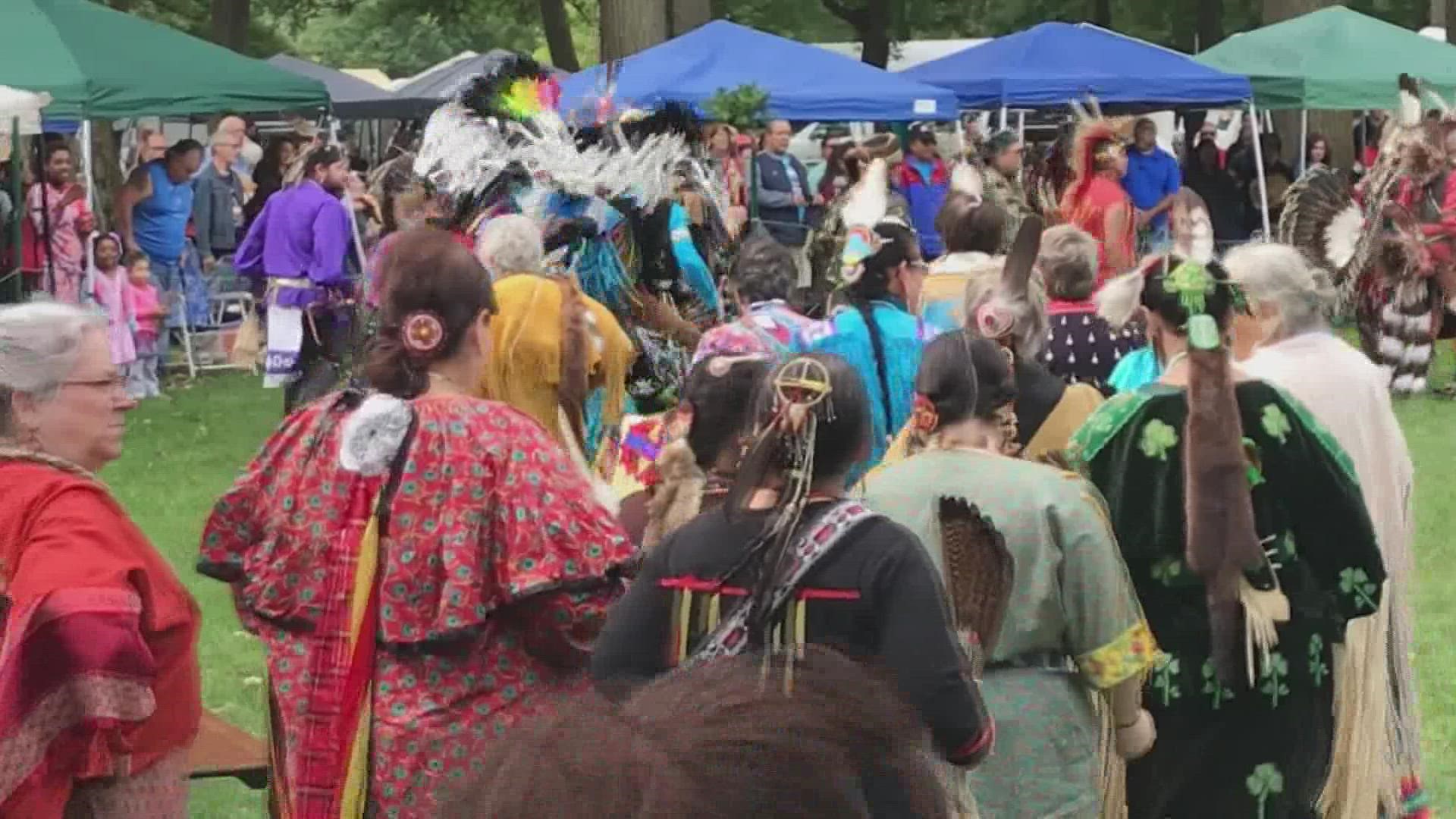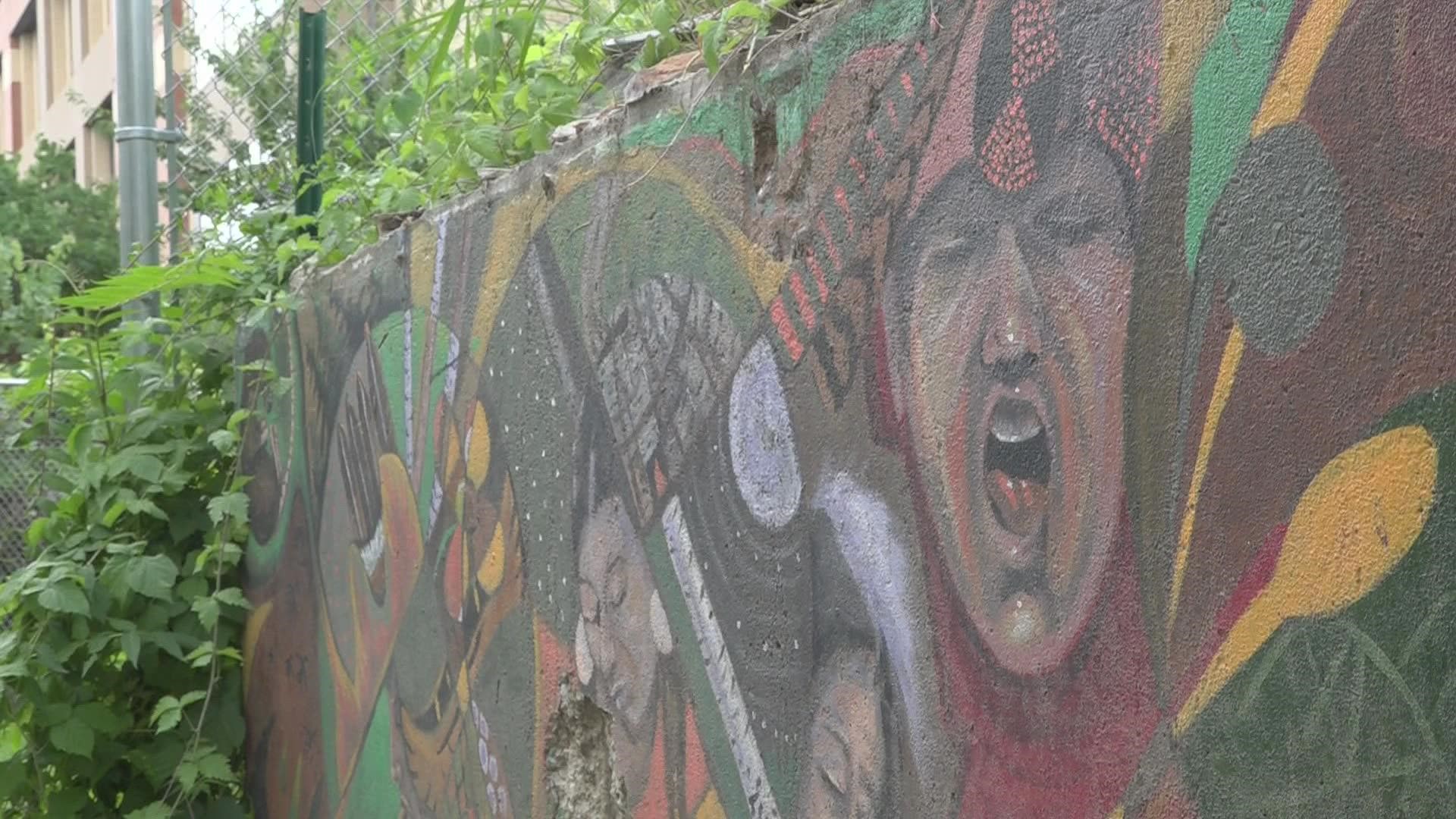GRAND HAVEN, Mich. — On a cold February afternoon, a bald eagle flies away from open water on an otherwise frozen Grand River with a small fish in its mouth. Many Indigenous people in Michigan call the bald eagle migizi. It is sacred to them, just like the ground where a small crowd of onlookers has gathered to marvel at the amazing bird that they've just seen.
In today's fast-paced world, it can be easy to forget that West Michigan was the home to the Council of Three Fires — the Potawatomi, Ottawa and Chippewa nations long before Europeans first arrived here. That's just one of the reasons a virtual town hall meeting is being held.
The Momentum Center in Grand Haven is hosting the event titled "Indigenous People and the Land," which will include panelists from several different Indigenous communities and organizations. There will be a question and answer segment, as well as small-group breakout discussions. Levi Rickert, the publisher of Native News Online says he's looking forward to the discussion.
"Our ancestors certainly worked very hard to protect and preserve the land for generations — the land and even waterways. So I love this topic. This topic is very important to Native people," Rickert said.
"So often we we have been ignored, put aside, and it is showing up in our health care, housing needs, on and on. And I think the more people really create the awareness around Native people, that we still exist, to me, it's really important so that we can be have better lives and interact with our other brothers and sisters of all colors."
This discussion is just the latest in a virtual series the Momentum Center has curated since the COVID-19 pandemic forced them to stop doing in-person town halls.
Barbara Lee VanHorssen, who calls herself an Experi-Mentor at the Momentum Center, says she believes the virtual town halls have had an impact on the community.
"We work really hard to create that safe, shame-free zone, where people can talk about the the things that they've been carrying around with them and unpack that, and figure out what they want to continue to carry and what they don't," she said.
"I think, in this particular case, one of the things that we have to realize is the impact on people of having their land taken. What would it mean to have lost your land? What does that do to your sense of place and belonging? And I think as individuals, we have to wrestle with that if we really want to get serious about how to create a more equitable and just society for everyone."
VanHorssen says she has encountered many people who don't want to participate in discussions like these. On one hand, she says there are people who think discussions of stolen land should be left in the past. On the other hand, she says many people have grown tired of only talking about these issues. But she wants to bring both of those groups of people into this kind of discussion.
"I think change comes relationally, and relationships start with conversations. So, this is a place to begin forming those relationships, which ultimately creates change," she said.
Rickert says participating in a discussion like this should be educational and empowering.
"Learning about one another's cultures is just so powerful and it can really work towards healing," he said.
To register for the event, you can visit the Momentum Center's website. The discussion will begin at 6:30 p.m. on February 28. You will need the Zoom app to participate in breakout discussions.
Watch the full interview here:
►Make it easy to keep up to date with more stories like this. Download the 13 ON YOUR SIDE app now.
Have a news tip? Email news@13onyourside.com, visit our Facebook page or Twitter. Subscribe to our YouTube channel.


